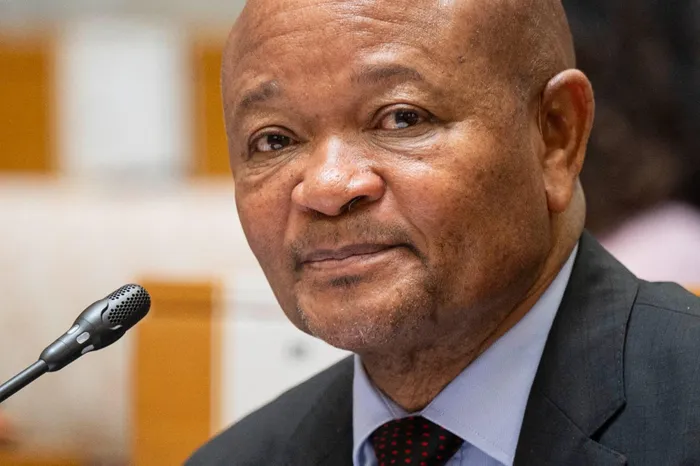
POLICE Minister Senzo Mchunu giving testimony before the Ad Hoc Committee investigating his controversial decision to disband the Political Killings Task Team (PKTT). Mchunu denies misconduct allegations.
Image: ARMAND HOUGH Independent Newspapers
BY NOW, President Cyril Ramaphosa should be used to making tough decisions. He is nearing the end of his second and last term as ANC president.
During the period of being the head of state, he would have learnt that some of the decisions he makes were not going to make him popular in some corners, although he tries his best to.
Often accused of being indecisive, what the president decides to do with Senzo Mchunu, whom he placed on special leave pending the outcome of a commission of an inquiry, may determine the legacy of his presidency.
The shocking claims emanating from both the Madlanga commission of Inquiry and the Parliamentary Ad Hoc committee make it hard to see how Mchunu’s return as police minister will be in the interest of the ministry.
More so for the SAPS, which is plagued by factional battles, allegedly fueled by Mchunu who is also accused of helping aid criminal syndicates with the hope that they will fund his presidential campaign, according to some of the testimony presented before the Ad Hoc Committee.
Ramaphosa’s options of keeping Mchunu as a cabinet minister are getting slimmer by the day. We are not saying that he is guilty of the allegations he has been accused of. Far from it and that is not for us to decide.
However, the SAPS’ reputation and public trust has been tarnished by the perception that some within its top brass are involved in malfeasance.
Since becoming president, Ramaphosa has mastered the art of delegating his decision-making responsibilities by appointing task teams, inquiries and advisory councils. The Mchunu issue, his long time ally, may be his biggest test yet.
At stake here is the future of this country’s policing system, which is facing near collapse if attempts to capture it are not stopped and corrective measures taken.
Regardless of the outcomes, Ramaphosa will have to act. And that decision may be the one that defines his presidency.